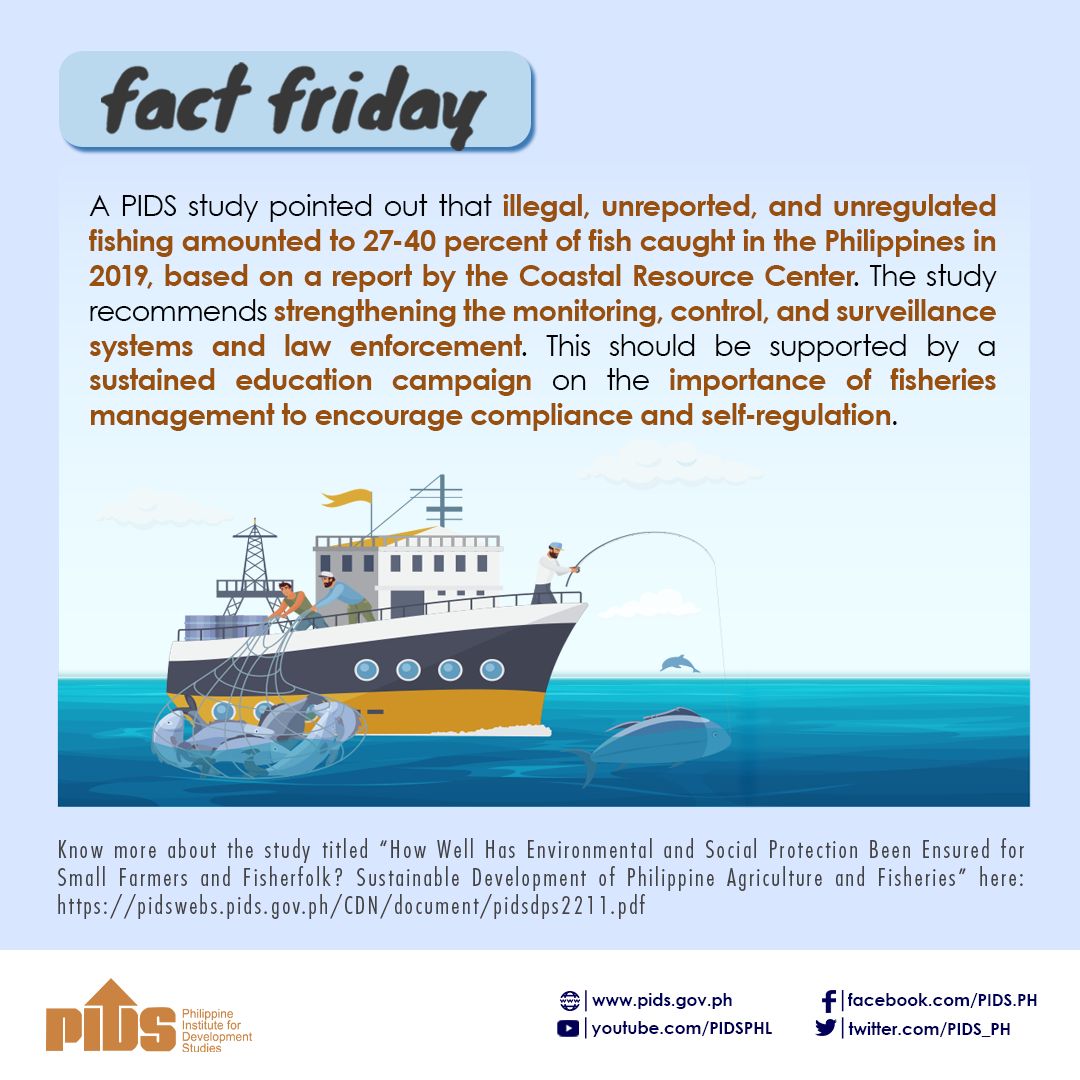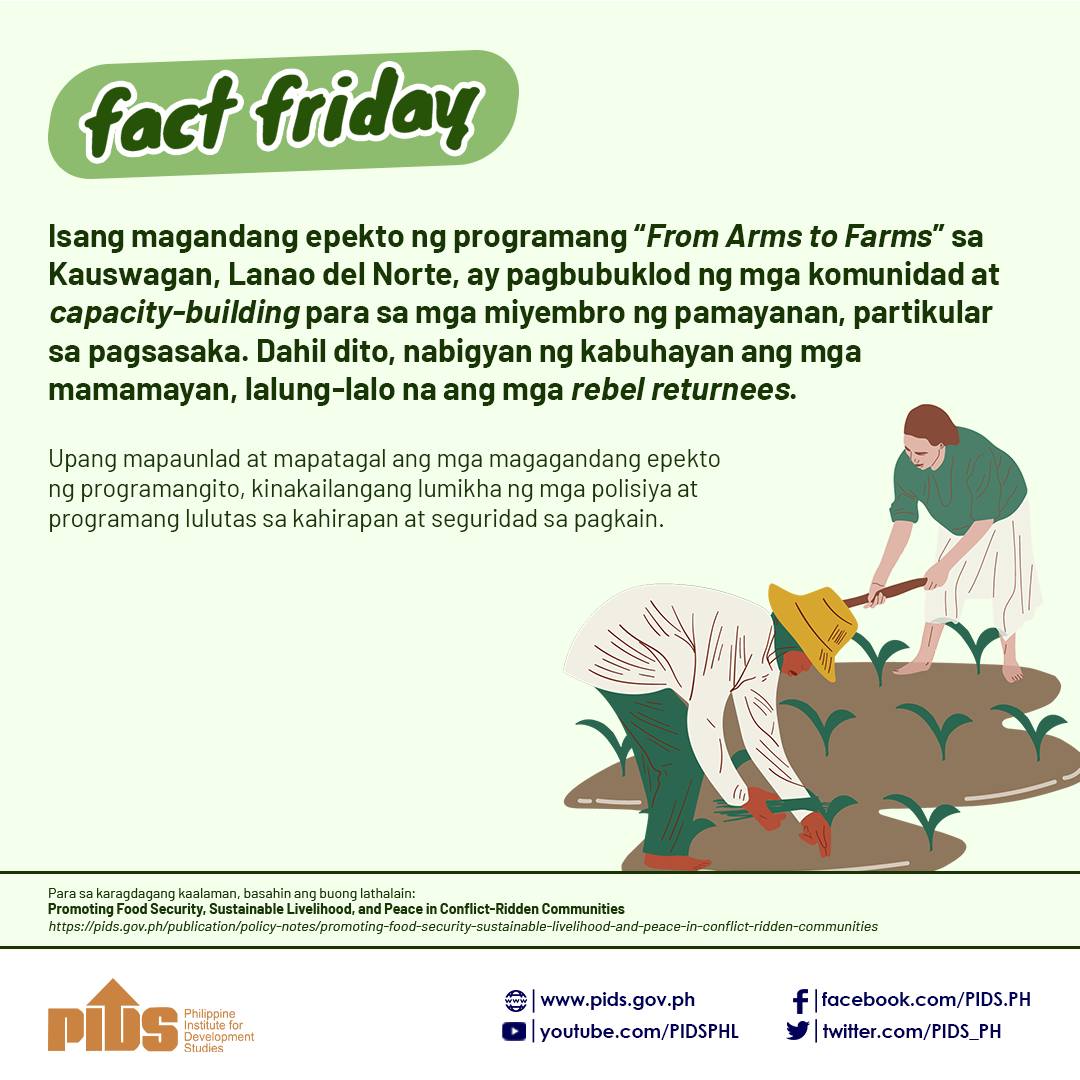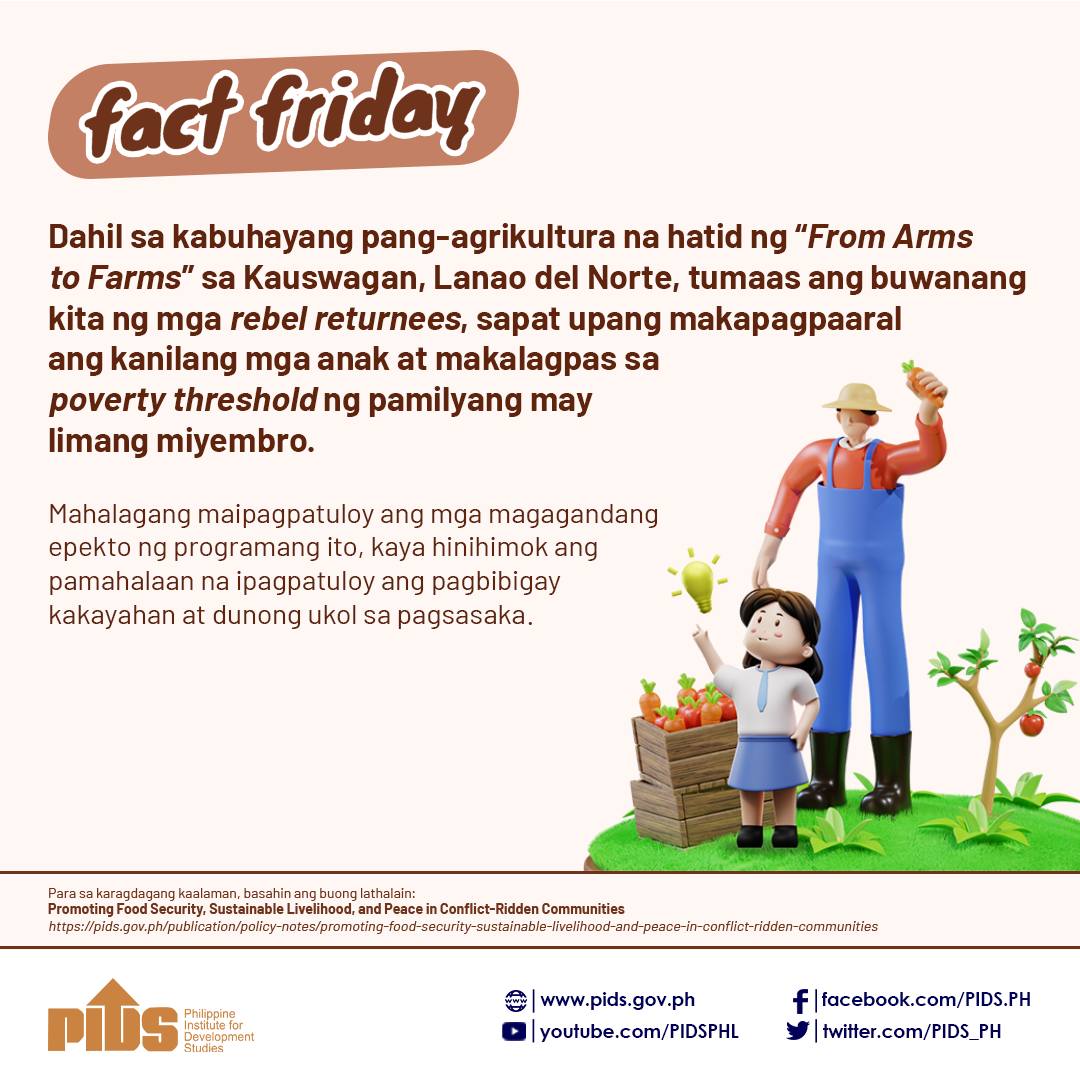DURING a low-key visit to Iloilo province last month to check various community projects of her office in several municipalities, Vice President Leni Robredo took note of the progress made by a farmers’ organization in Cabatuan town which received last year several mechanized farm equipment such as tractors. Farmer-members of the organization previously used carabaos to prepare their farmlands for planting. With the farm tractors, land preparation had been reduced to two hours.
Indeed, farmer organizations such as agrarian reform beneficiary organizations (ARBOs) facilitate smallholders’ participation in the agriculture value chain. According to a study released by state think tank Philippine Institute for Development Studies, farmers’ membership in organizations lowers their transaction costs, assists them in getting better contract offers from buyers, and enables them to access resources and skills training.
ARBOs become more relevant as farmers move to higher-level value chains, particularly postharvest and marketing activities. However, many farmer organizations in the country have low level of organizational maturity and are mainly formed to access funding. The Department of Agrarian Reform’s (DAR) information technology-enabled maturity assessment scores showed that only 10 percent of ARBOs in the country are classified under the high maturity level, about 46 percent have low organizational maturity, while the rest have mid-level maturity. Many are not organizationally functional. A significant number do not practice capital build-up and savings mobilization. Other prevalent issues include the inability to attract new members, low and declining membership caused by members’ withdrawal, and mismanagement.
Also, ARBOs tend to be loosely organized and may become inactive or reorganized after access has been achieved.
To address these issues, one suggestion is motivating farmer members to commit to the organization through equity participation. Another recommendation is to urge farmer-organizations to establish enterprises that will generate income for their members. Participation in higher value chain requires entrepreneurial development and an organization to manage the enterprise. Thus, ARBOs should have a high level of organizational maturity and are financially capable to do so.
But more important is capacitating farmer-organizations on building alliances or networking. For instance, through DAR’s “big brother” strategy, lead ARBOs or mature farmer-organizations are expected to assist others that have yet to reach sufficient organizational and financial maturity by sharing their expertise in operations and management. The “big brother” strategy works when there are strong alliances or linkages among farmer organizations.
Empowered farmers would greatly help boost our agriculture sector and food security.












